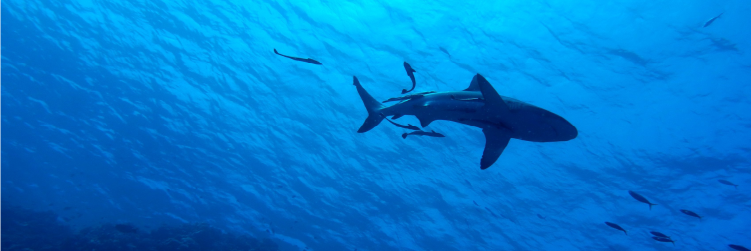Humane Society International and EAST call on National Palace Museum to drop shark fin
Humane Society International and EAST joint statement
Attention: National Palace Museum- Silk Palace at National Palace Museum
Humane Society International (HSI) and EAST are writing to ask for your help in preserving marine ecosystems and reducing cruelty to animals. Specifically, we are asking you to immediately and permanently remove any products containing shark fin from your restaurant menu. In addition, we ask you to adopt and implement a written policy of never serving products containing shark fin at your restaurant.
As you are aware, in Chinese tradition, shark fin soup is considered to be an essential dish during banquets to express the host’s status. It is said that “there is almost no luxury banquet without shark fin soup.” However, this custom has been heavily criticized by both domestic and foreign environmental and animal protection groups.
Shark fins add almost no nutritional value to dishes, but they may add an ingredient your diners don’t want: mercury. Laboratory tests have uncovered levels of mercury in shark fins that far exceed recommended safe levels.
It is estimated that tens of millions of sharks are finned every year to meet the demand created by shark fin soup. In 2006, a study of the Hong Kong shark fin trade estimated that an average of 38 million sharks, weighing a total of 1.7 million tons, are killed every year. A separate analysis of the trade found that as many as 40 million to 70 million sharks are finned each year for shark fin soup.
Because shark fins are far more valuable than any other part of the shark body, and because there is limited space in freezers on commercial fishing boats, millions of sharks have their fins cut off while still alive and are then thrown back into the water, enduring a painful death from suffocation, blood loss or predation by other species. This cruel and wasteful practice has contributed greatly to the decline of most large shark species during the past half-century.
A study of shark populations by the World Conservation Union has concluded that 111 species are under serious threat, with 20 classified as critically endangered, 25 classified as endangered and 66 classified as vulnerable. Sharks are particularly susceptible to decline because they are animals that mature slowly, have long gestation periods, and produce relatively few young. A collapse in shark populations, as with other predators, could have devastating consequences for many other fish species in the ecosystems sharks inhabit. Research in the coastal Northwest Atlantic shows that the removal of predatory sharks resulted in an over-abundance of rays, which subsequently preyed on scallops to such an extent that a century-old scallop fishery had to close down.
A growing number of well-respected Asian establishments, such as the University of Hong Kong, Disneyland Hong Kong, the government of Malaysia, and, most recently, The Tung Wah Group of Hospitals, Hong Kong’s oldest and largest charitable organization, no longer serve shark fin soup. When the daughter of former President Chen Shui-bian of Taiwan was married, President Chen announced that shark fin soup would not be served at his daughter’s wedding.
National Palace Museum is a world-class museum that is in charge of the nation’s treasures and priceless artworks. It is a highly respected and high profile symbol of Taiwan on the international stage. As such, the Museum is in a position to set an example, both at home and abroad, by demonstrating its commitment to protecting our marine ecosystems and animal welfare.
HSI and EAST ask you to join this trend by ensuring that your restaurant no longer serves any dish in which shark fin is an ingredient.
Thank you in advance for your consideration. We look forward to receiving your response.
Sincerely,
Shu Jen Chen and Wu Hung












